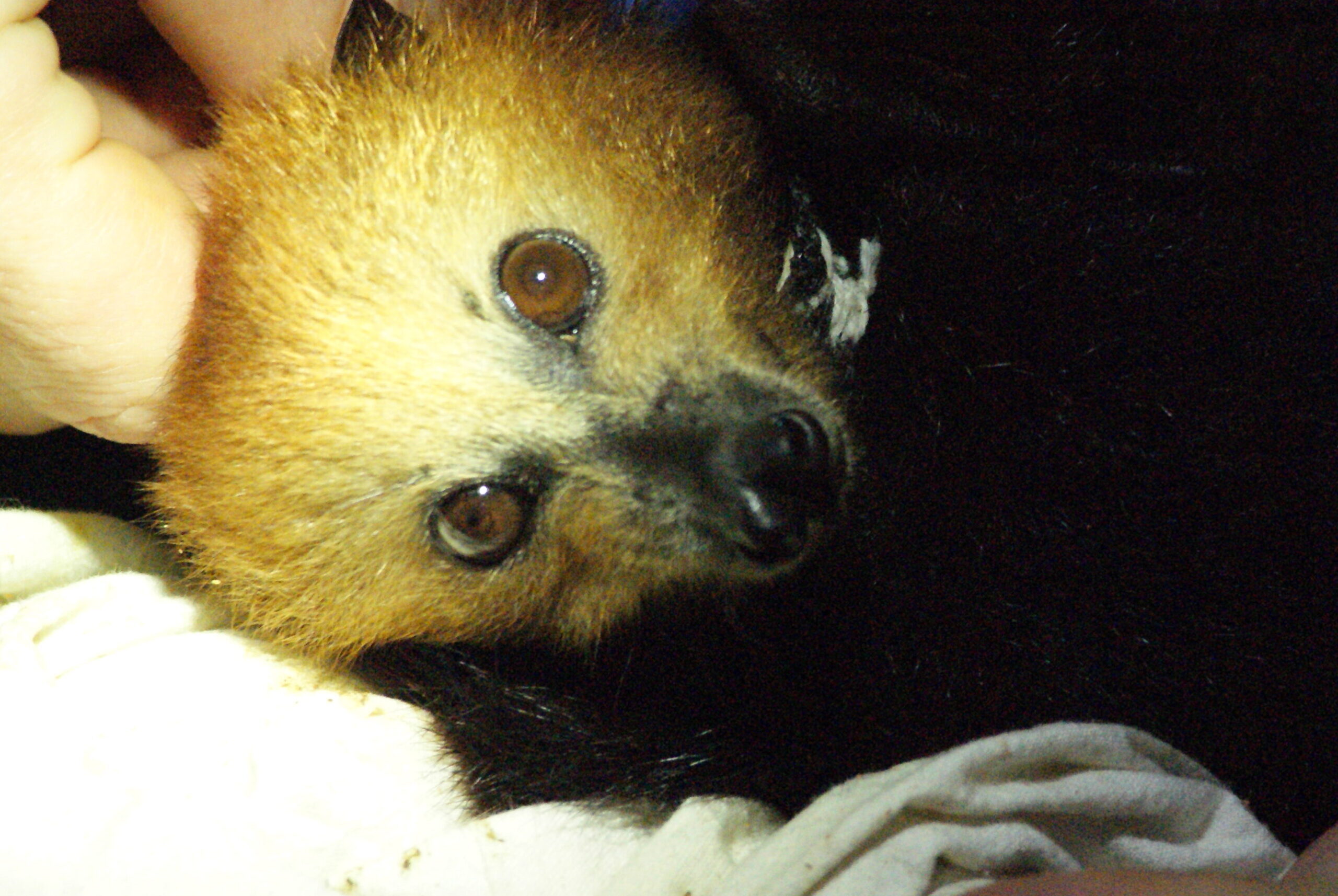The Mauritian fruit bat (Pteropus niger) plays an important ecological part in the ecosystem of the island Mauritius, as it is the only remaining large seed disperser of native plants.
Hanging close to the basket had the highest frequency of occurrences in this study. This behaviour might be important to the bats due to energy saving achievements by reduced locomotion after feeding. Additionally, it might serve as a way to occupy their feeding territory, by staying close to the food source. Flapping wings seems to be the first stage of their territory defence and is most effective when individuals are still further away and a fight with body contact is not necessary.
With more baskets installed, a higher number of bats in the tree were observed, which increased the number of individuals per night. Subsequently, with more activity, more defence behaviour and a higher rate of aggressiveness was recorded and therefore the bats spent less time on the tree, as they were displaced more frequently. The rise of the bat activity over the consecutive days could be connected with an information transfer (chemical components) in the day roosts or the bats being attracted by the fighting on the tree

To the latest knowledge, this research is the first scientific recording of the resource defence behaviour in Pteropus niger. It adds to the foundation of the basic understanding of the endangered species, which is needed to implement sufficient education to improve conservation strategies.